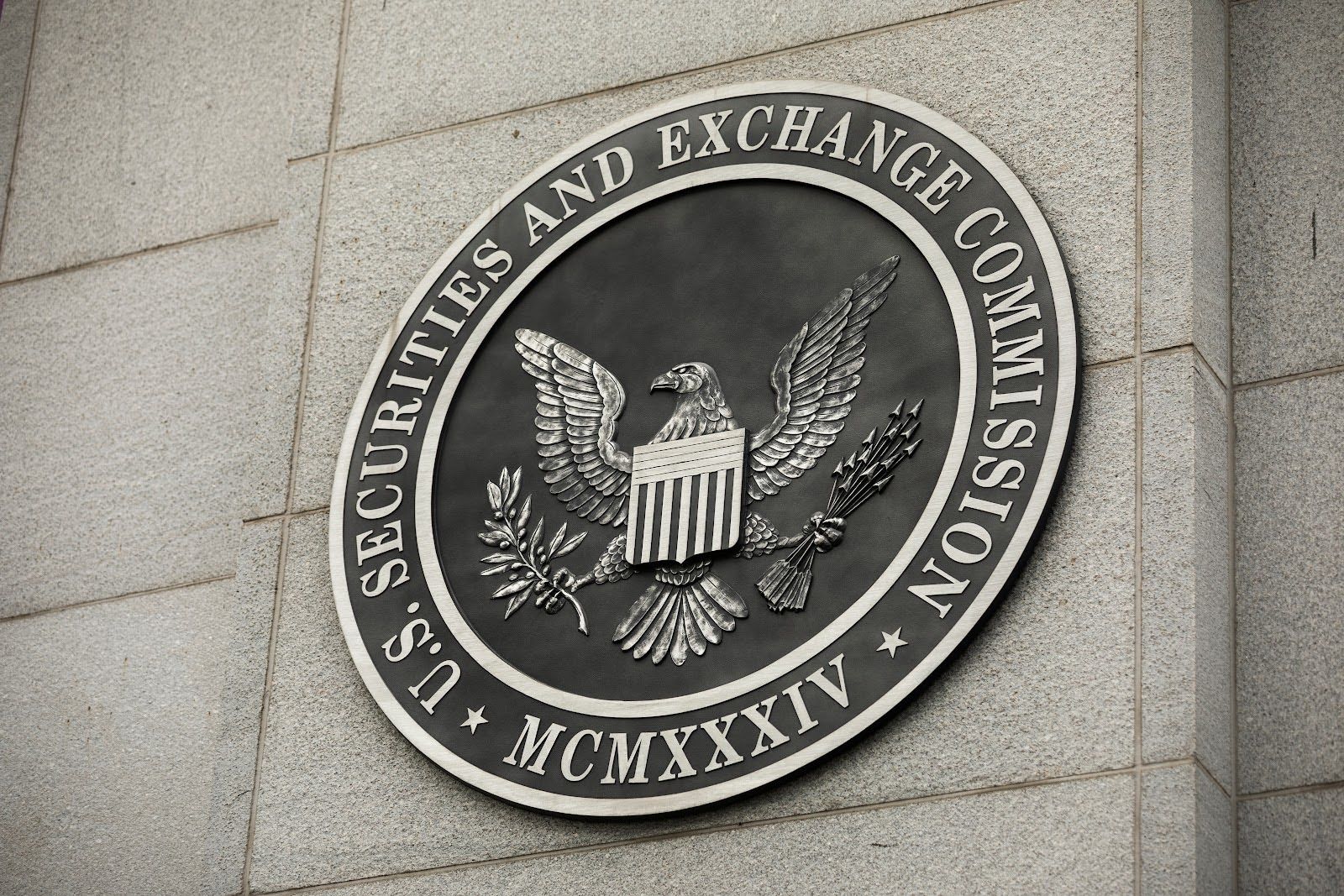2021-3-5 17:28 |
How will a Democratic administration in the U.S impact bitcoin regulation and the BTC price over the next four years?
Joe Biden is officially the 46th president of the United States and the Democratic Party is back in power. We are all already aware of how this has affected the price of bitcoin — coincidence or not, the BTC price has more than tripled since November 7, 2020, when the election results were announced.
Now, after BTC hit new all-time price highs and kept on rising, let’s analyze what may happen to bitcoin in the longer term with the Democratic Party in charge of the White House over at least the next four years.
How Will Democratic Policies Affect BTC?First of all, why has the BTC price risen so much after the election results were announced? There may be several reasons. Some might say that with the left-leaning political party in charge of the biggest economy in the world, many people consider BTC as a more safe asset compared to the U.S. dollar. The increased taxation and regulation that can be expected from the Democratic Party may be motivating Americans and American companies to invest in bitcoin, causing its price to rise.
The most hardcore conservatives may even think that the new government is almost communist in its leanings and that, in the near future, America will institute a planned economy or Gulag. Thankfully, this is far from likely. Even though some of the Democratic Party members may truly be called part of the “radical left,” in economic terms, this party is moderately liberal and socially Democratic.
However, it is likely that in the next four years, we will really see an improvement in the regulation of the U.S. financial system, especially when it comes to cryptocurrency and bitcoin.
During the Trump era, the U.S. economic policy was generally crypto friendly. Even though Trump himself declared that he is not a fan of BTC, the regulators who he appointed and the policies implemented by them saw the whole cryptocurrency sector grow significantly. Is it going to change with the Democrats ruling the White House?
The Democratic Party includes two main wings these days. The first one consists of classical liberal Democrats, many of whom earlier worked for the governments of Bill Clinton and Barack Obama. These are the people who most likely will be in charge of U.S. economic policy for the next four years.
The second wing consists of more radical, socialist and younger party members, the most famous of whom is probably Alexandria Ocasio-Cortez (aka, AOC), the U.S. representative for New York’s 14th congressional district since 2019. While these people are unlikely to hold any significant economic posts in the current government, they still may influence the U.S. economic policy.
But who exactly will rule the U.S. economic policy in the next four years? And how is it going to influence Bitcoin and its price in the long term? Let’s figure it out.
Gary GenslerThe first important Democratic Party member we should mention here is Gary Gensler, who has been nominated to serve as chair of the U.S. Securities and Exchange Commission (SEC) by President Biden. If this nomination is confirmed by the U.S. Senate, the commission will have a three-to-two Democratic majority.
Gensler is a person with a vibrant financial background. After graduating from the Wharton School at the University of Pennsylvania summa cum laude, followed by the acquisition of an MBA, Gensler joined Goldman Sachs. He spent the following 18 years working there, becoming a top mergers and acquisitions banker throughout the ’80s, and later he made the transition to the trading and finance department of the same company.
Afterward, he held major economic positions in the U.S. government, such as an assistant secretary for the U.S. Treasury from 1997 to 1999 and an undersecretary for domestic finance from 1999 to 2001.
Later, Gensler served as the 11th chairman of the Commodity Futures Trading Commission under Obama from 2009 to 2014. Hence, he was one of the leading figures in the process of bringing transparency and regulation to the U.S. derivatives market after the financial crash of 2007 to 2008.
Additionally, Gensler has had an outstanding academic career — he holds a professor’s position at the MIT Sloan School of Management. It’s interesting that during his time at MIT, Gensler focused his teaching and research on digital currencies, financial technologies and blockchains. Two of his courses on these subjects are even available online for free.
Gensler has a vast knowledge of financial technologies and blockchain technology and its possible applications. He described his views on them in detail in an article published on CoinDesk in December 2019. In his opinion, cryptocurrencies and blockchains have already stimulated significant changes in the financial and banking world by their mere existence, and will most likely continue to do so. According to him, these technologies are valuable already because they serve as a catalyst for the development of the whole financial industry.
At the same time, Gensler has said that bitcoin has evolved into a speculative asset that doesn’t have many applications in the real world at the moment. He has also argued that crypto markets are prone to scams and manipulations. Despite all that, he says that the potential of the technology behind it is huge.
All of these statements combined with Gensler’s background and nomination imply that crypto markets will be likely seriously regulated in the next several years in the U.S. Fortunately, with such a knowledgeable professional like Gensler at the head of this process, the entire industry has a lot of potential to see improvement.
We will later discuss how exactly crypto market regulation may influence bitcoin price. Now, let’s look at one more person who is going to participate in the regulatory process.
Janet YellenAnother Democrat who will be largely responsible for economic policy in Biden’s government is Janet Yellen, who was recently confirmed by the U.S. Senate as the 78th U.S. Secretary of the Treasury.
This woman is a gifted economist with significant work experience in academia as well as in government. She has worked at such institutions as the London School of Economics and the University of California, Berkeley, and she is now a professor emeritus at Berkeley’s Hass School of Business.
Yellen was the 11th president of the Federal Reserve Bank of San Francisco from 2004 to 2010, the 19th vice chair of the Federal Reserve System from 2010 to 2014 and the fifteenth chair of the Federal Reserve from 2014 to 2018. Yellen is a Keynesian economist in her economic philosophy.
Despite her background and wide professional knowledge, some of Yellen’s statements about Bitcoin and cryptocurrencies may cause certain concerns. After the ambiguous remarks made by Yellen during the Senate hearings on her nomination for the new position in January, many crypto enthusiasts questioned her professionalism and knowledge on the subject.
But what exactly did she say?
During the Senate hearings, when asked about crypto by Senator Maggie Hassan, Yellen expressed her concerns about the possible use of cryptocurrencies to finance terrorist and criminal activities. In her opinion, many of them are used mainly for illicit financing, and strong regulation is needed to make sure that illegal and money-laundering activity is not performed using these means.
These remarks caused a significant backlash in the crypto community. Many crypto influencers reacted negatively to Yellen’s statements. For example, Dan Held, the growth lead at Kraken exchange, pointed out that only 0.3 percent of all cryptocurrency activity in 2020 was illicit, and at the same time 90 percent of all U.S. dollars bear traces of cocaine on them. Anthony Pompliano, Morgan Creek Digital partner, reacted in a similar way. According to him, Dr. Yellen forgot to mention that the U.S. dollar is used by criminals all around the world. He also pointed out that large banks participate in money laundering, dealing with sums bigger than the entire market capitalization of bitcoin.
Yellen later clarified her views on bitcoin and cryptocurrency in written testimony. She argued that cryptocurrencies and bitcoin have the potential to improve the financial system, but an effective regulatory framework is needed here.
It seems that, in Yellen, we see a more conservative member of the older generation in charge, one who is not as familiar with bitcoin and cryptocurrencies as Gensler is. It is not yet clear how effective and appropriate the cryptocurrency regulations that she might implement will be. Fortunately, the aforementioned Gensler will most likely be in charge of the overall regulatory process.
But now, let's see how the more radical, left wing of the Democratic Party could impact bitcoin. What has Ocasio-Cortez said about them, for instance? And what can we expect from her side of the party?
Alexandria Ocasio-CortezAOC is probably the most famous young person in the Democratic Party today. Since 2018, when she was elected as the U.S. representative for New York's 14th congressional district, she has become one of the most talked-about political figures in the U.S. Thanks to the efforts of Fox News, now she is a "face" of the whole Democratic Party, especially in the eyes of conservative audiences. This segment of Americans often perceives her as a radical socialist who threatens to destroy the foundations of traditional American society.
This perception may have some truth in it. AOC’s political views may seem to stand on the radical left to many Americans. For example, she proposed to introduce a marginal tax as high as 70 percent on income above $10 million as a means of payment for the Green New Deal. She has also advocated for the abolition or significant reduction of existing university debts, as well as for defunding and abolishing the U.S. Immigration and Customs Enforcement (ICE).
AOC has not spoken out about Bitcoin directly — though she warned her Twitter followers not to fall for the tricks of the scammers. However, her statements about Libra, Facebook's own digital currency, are quite interesting.
During a hearing with the U.S. House Financial Services Committee, when Facebook’s representative David Marcus faced lawmakers to discuss Facebook’s Libra project, an amusing dialogue took place between Marcus and AOC. She asked him how the founding members of the governance over this new currency were chosen, and got the response that the membership was based on certain criteria — the chosen members were the representatives of the first 27 companies who joined the project. From this, she rightly concluded that the new currency would be headed by an undemocratically selected committee, consisting of representatives of large corporations. And that could be a major problem for a fundamental public asset.
This somewhat radical attitude toward corporate digital assets can play into the hands of bitcoin investors and the cryptocurrency community as a whole. After all, Libra and similar corporate projects to some extent betray the very idea of blockchains and cryptocurrencies, creating a corporate-managed digital asset that would theoretically compete with bitcoin. Therefore, such an aggressive attitude from left-wing politicians toward the creation of such corporate assets is, in a sense, a positive phenomenon for the overall Bitcoin community.
What May Happen To The Bitcoin Price In The Next Four YearsWhat conclusions can be drawn from all this?
First of all, we need to understand that the cryptocurrency industry is likely to face serious regulation in the coming years. During the Trump administration, cryptocurrency laws were very, very soft. This is going to change. The question is whether the effect of this regulation on the cryptocurrency industry will be positive or negative.
The cryptocurrency market certainly needs adequate regulation. If the U.S. government, led by Democrats, is able to create an effective regulatory framework that will attract investors and promote the development of necessary infrastructure, then the number of people using cryptocurrency will increase. This, in turn, may positively affect the bitcoin price in the long term.
On the other hand, if the future regulatory system is too strict, the cryptocurrency market may stagnate.
This is especially true of requirements for cryptocurrency infrastructure facilities — for example, cryptocurrency exchanges and wallets. For instance, the use of the HitBTC cryptocurrency exchange is prohibited in the United States, although it is available in most other countries. If the regulation of cryptocurrency increases significantly in the U.S. and a large number of such exchanges leave the U.S. market, users may leave with them. Thus, the overall market capitalization and price of bitcoin could be affected.
Other big cryptocurrency facilities, the use of which is partially or completely restricted in the United States, include such platforms as Changelly, Binance, ByBit, BitMEX and more.
However, this is a larger threat to altcoins than it is to BTC. Bitcoin, as the leading cryptocurrency, is unlikely to fall prey to over-regulation. Exchanges that give the opportunity to buy bitcoin will remain available to U.S. citizens in any case. Moreover, if some of the altcoins leave the market due to the inability to operate under conditions of excessively tight regulation, bitcoin will only benefit.
Another important thing to track is the possible fate of corporate digital assets and central bank digital currencies (CBDCs) under the rule of the Democratic Party in the United States.
In my opinion, there are several possible options here.
Option one: Taking into account his experience in dealing with the aftermath of the 2008 financial crisis, Gensler introduces strict regulations for corporate digital assets. In this case, many projects to create corporate digital currencies may cease to exist. Severe regulation in this area may mean that corporations cannot create their own digital assets. In the long run, such an outcome could be beneficial for bitcoin by eliminating the potential competition.
Option two: Corporate digital assets receive support from the state and begin to compete with existing cryptocurrencies. In the long run, this development could lead to an effectively state-sponsored competitor for bitcoin.
Another possible option: The government and regulators restrict the circulation of both corporate and independent digital assets and focus their efforts on creating their own state digital asset, the so-called CBDC. This option can be considered the worst for bitcoin and its price. But such a scenario should be considered unlikely — even if the United States seriously undertakes the creation of its own CBDC, it is highly unlikely that it will come to a complete ban on bitcoin and other cryptocurrencies. Rather, they will exist in parallel, meeting different social needs.
It is difficult to say exactly how events in the cryptocurrency industry in the United States will develop in the next four years. All of the options listed above are possible. But now, when it comes to the bitcoin price, it seems to me that the most likely scenario for the coming years is that the price of bitcoin will either continue to grow or remain at approximately the same high level that it has now. So, if you are investing in the long term, perhaps the best option is to hold.
This is a guest post by Bert Kozma. Opinions expressed are entirely their own and do not necessarily reflect those of BTC Inc or Bitcoin Magazine.
origin »Bitcoin price in Telegram @btc_price_every_hour
Bitcoin (BTC) íà Currencies.ru
|
|










